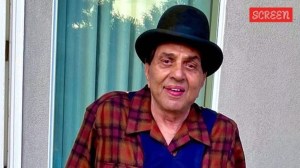Jaipur-Mumbai train shooting | Accused has fundamental right to maintain silence: Court
Chaudhary, who allegedly killed his senior officer and three Muslim passengers on Jaipur-Mumbai Central Superfast Express on July 31, has been dismissed from service and is currently in judicial custody.
 Since the accused is not ready to face such tests, to protect his fundamental right, the application deserves to be rejected. (Representational Image)
Since the accused is not ready to face such tests, to protect his fundamental right, the application deserves to be rejected. (Representational Image) IN ITS detailed order rejecting a police plea for brain-mapping, polygraph and narco-analysis tests on dismissed Railway Protection Force (RPF) constable Chetansinh Chaudhary, the court said that the accused has a fundamental right to maintain silence.
Chaudhary, who allegedly killed his senior officer and three Muslim passengers on Jaipur-Mumbai Central Superfast Express on July 31, had initially given his no-objection to the plea by the police but later submitted before the court that his health is not good and he does not want to consent for such tests.
The magistrate court in its order on August 11 relied on Supreme Court judgments which state that no one should be subjected to any such techniques in question and the tests can be used only in exceptional circumstances with the consent of the accused. “But, there is no room for compelling the accused to face such a test without his consent.
Since the accused is not ready to face such tests, to protect his fundamental right, the application deserves to be rejected. It is the fundamental right of the accused to maintain silence. In my opinion, only for the smooth investigation, permission cannot be granted,” metropolitan magistrate S M Patil said in the order, made available on Friday.
Chaudhary has been dismissed from service and is currently in judicial custody.







